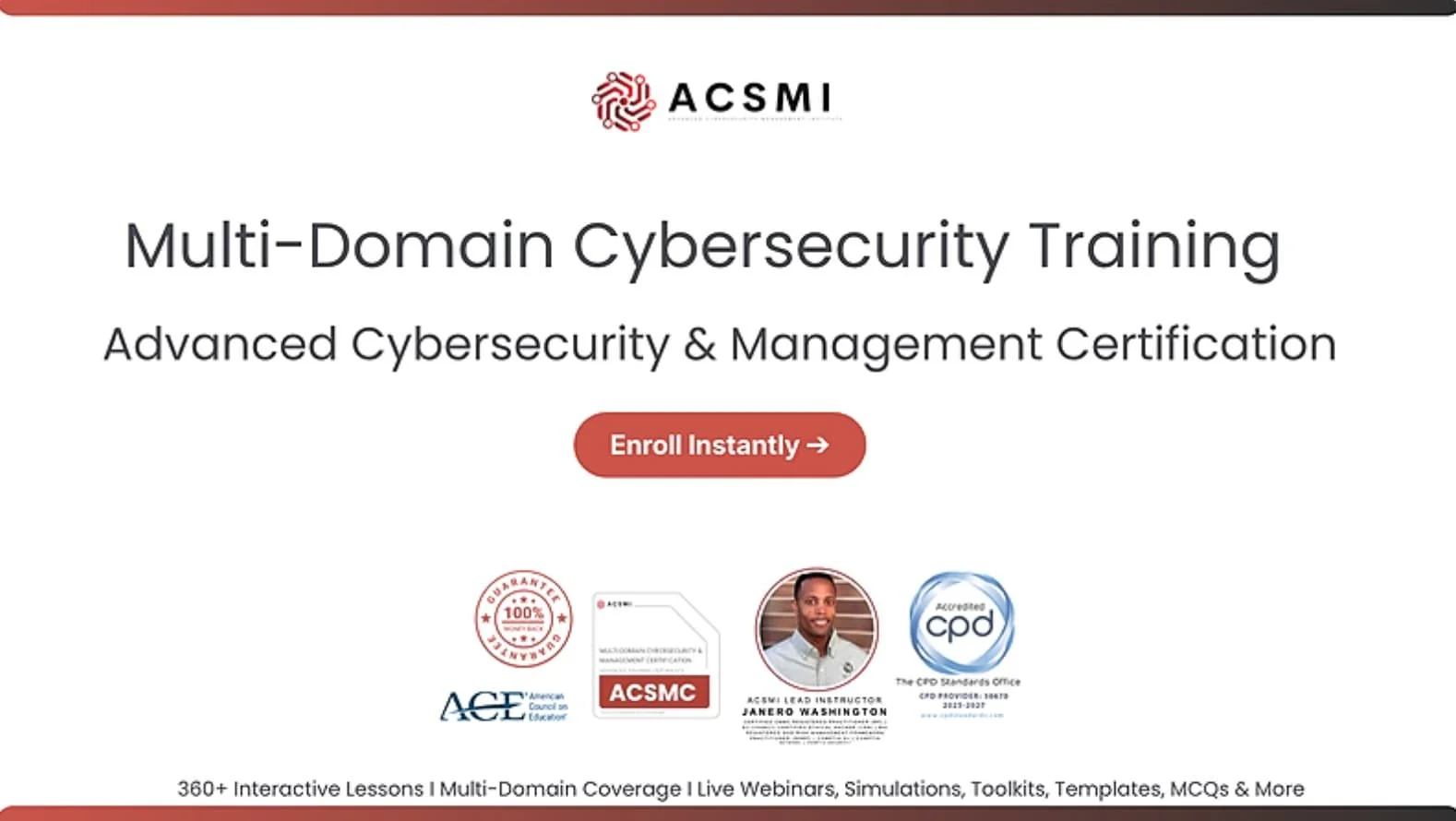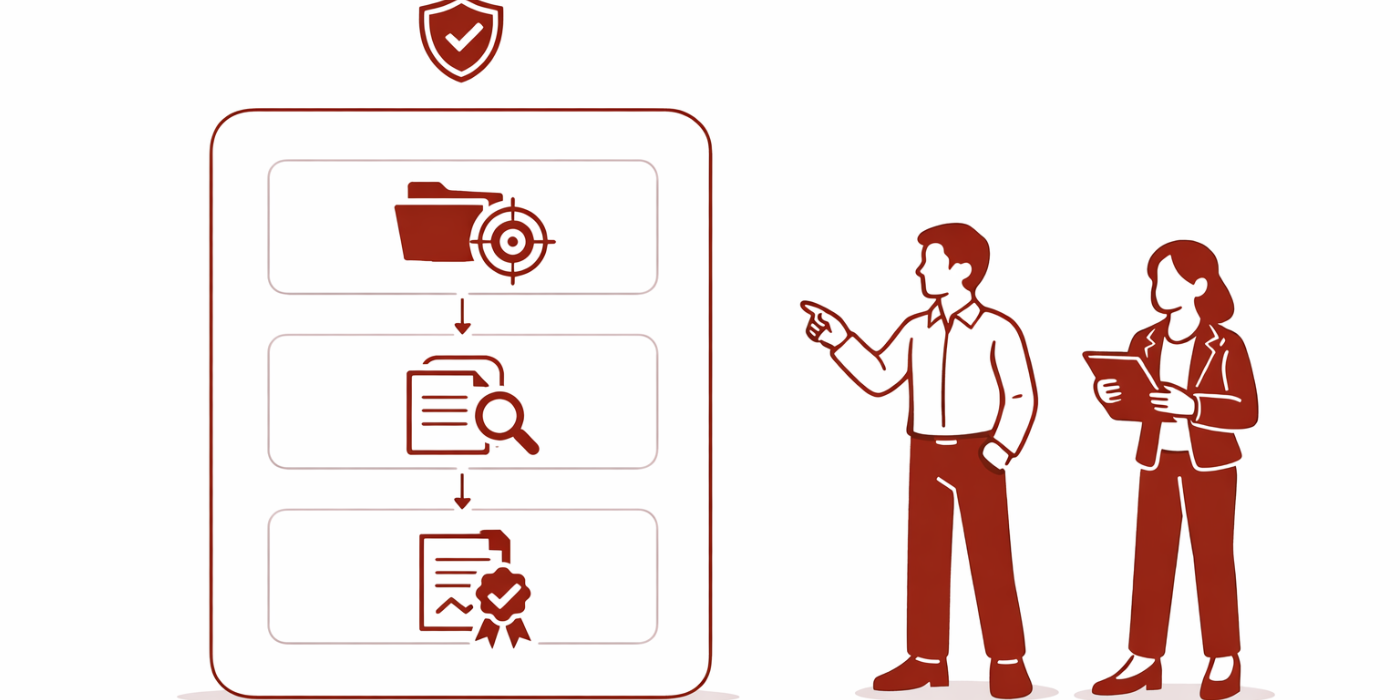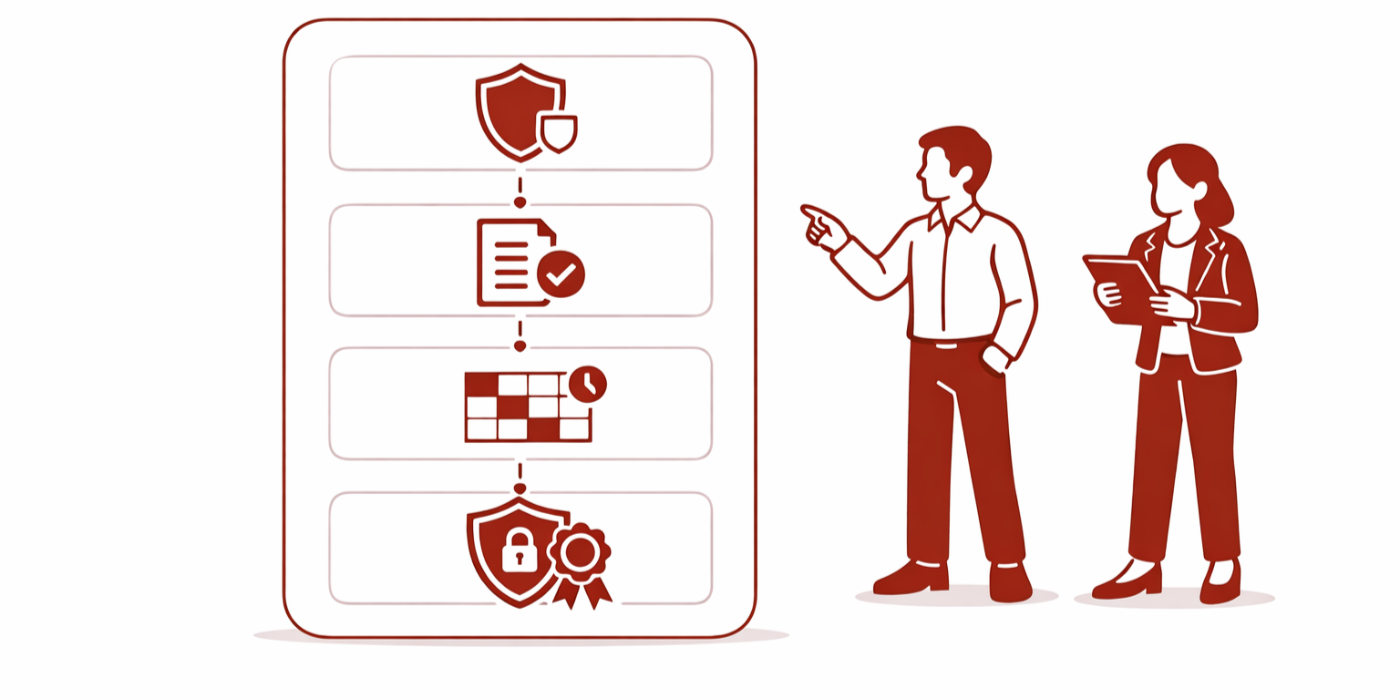Multi-Domain Cybersecurity Training & Certification
Earn Multi-Domain Cybersecurity & Management Certification (ACSMC) online with ACSMI. This CPD-accredited and ACE college credit recognized cybersecurity certification is designed to bridge the gap between theory and real-world skills.
Whether you're a college graduate, IT professional, or career changer, this complete cybersecurity training program empowers you with cutting-edge knowledge.
Gain new career opportunities with our professional cybersecurity certification that provides affordable yet high-quality training across industries and skillsets to preserve lifetime career success and easier career pivots.
✔ CPD Accredited (170+ CPD Hours). ACE-Recognized (6 Semester College Credit Hour)
✔ 300+ Interactive Bite-sized Lessons Covering All Major Cybersecurity Domains
✔ Led by Janero Washington with 10+ Years of Cybersecurity Teaching Expertise
✔ Risk-Free 14-Day Refund, Lifetime Access, Flexible Payment Plans & Mentorship
✔ Real-World Cybersecurity Cases, Labs, Simulations, and Capstone
✔ Preparation for Certification Exams While Gaining Career Confidence Across Roles
✔ Fast-Track (8 Weeks) or Self-Paced (Up to 6 Months) Study Options
Lesson OverviewWhat You Will Master in ACSMI’s Advanced Cybersecurity & Management Certification
Cybersecurity isn’t just a career path anymore, it’s a frontline battle. With ACSMI’s
Advanced Cybersecurity & Management Certification. You learn how to outthink,
outmaneuver, and outlast the next generation of cyber threats.
Inside 300+ carefully crafted lessons, you’ll master:
You won’t just know cybersecurity, you’ll command it.
Incident Response and Digital Forensics
Lead cyber investigations, recover breached systems, and present bulletproof forensic evidence — just like top SOCs worldwide.
Information Security and Data Protection
Command identity management, cryptography, and GDPR/CCPA-grade data defense — the skillset every future-ready organization demands.
Malware Analysis and Reverse Engineering
Deconstruct malware and protect digital ecosystems from quantum-era cyberweapons.
Cybersecurity in Specialized Sectors
Dominate critical sector cybersecurity: healthcare, aviation, maritime, smart cities, and more.
Cloud Security and Virtual Environments
Build resilient cloud infrastructures across AWS, Azure, and hybrid environments — fully compliant, fully secure
Ethical Hacking and Penetration Testing
Deconstruct malware and protect digital ecosystems from quantum-era cyberweapons.
Foundations of Cybersecurity
Build indestructible knowledge in threat landscapes, frameworks (NIST, ISO 27001), and legal/ethical operations
Endpoint, Cloud, and Application Security
Fortify endpoints, cloud-native apps, containers, and serverless architectures against relentless attacks.
Network Security and Infrastructure Protection
Architect, harden, and defend 5G, cloud, and enterprise networks with firewalls, IDPS, VPNs, and Zero Trust models.
Threat Intelligence and Threat Hunting
Detect, isolate, and eradicate advanced threats with real-world APT simulations and machine-learning enhanced threat hunting.
why choose usWhy Choose ACSMI's Advanced Cybersecurity & Management Certification?
Advanced cybersecurity training online covering every major certification framework
14-Day Refund Guarantee — enroll risk-free.
CPD Accredited Certification recognized globally.
300+ in-depth modules designed for real-world cybersecurity mastery.
Fast-track or self-paced learning options available.
Live webinars, 1-on-1 mentorship, and practical labs.
Online cybersecurity training with certificate ready for industry roles.
Flexible tuition plans up to 12 months interest-free
Learn smarter, certify faster, and stand out with an accredited cybersecurity certification online
Career OpportunitiesASCMI’s Certification Will Get You Practical Skills That Set You Apart
Hiring managers don’t want memorized facts. They want proven defenders.You’ll graduate with a portfolio, a toolkit, and the battle scars that prove you’re ready to own a cybersecurity career.
-
Capture the flag scenarios that sharpen real-time hacking and defense instincts.
-
Architect an enterprise defense, survive a full-scale attack, and prove your strategy in a simulated boardroom defense briefing.
-
Master tools like Splunk and Elastic for threat detection, response, and proactive hunting.
-
Go beyond theory with full-scope penetration testing across cloud, mobile, network, and IoT landscapes.
-
Build multi-layered defenses in AWS, Azure, and hybrid clouds with live case studies.
how it worksHow to Get Started with ACSMI’s Cybersecurity Certification, Step-by-Step Process
Starting your cybersecurity career with ACSMI’s Advanced Cybersecurity & Management Certification is simple and streamlined. Here’s how you can get started:
ACSMI makes it easier than ever to transition from where you are now — to where cybersecurity’s future needs you.
-
01. Choose Your Enrollment Option:
Select your preferred plan — full access, mentorship upgrade, or flexible 12-month payments starting at just $208/month.

-
02. Complete Your Registration
Register securely through our online portal. You'll get instant access to your learning dashboard, course materials, and support channels.

-
03. Attend Orientation and Launch
Start with a welcome session to map your learning path. Whether you choose the 8-week fast-track or 3–6 month self-paced option, you’ll have complete guidance from day one.
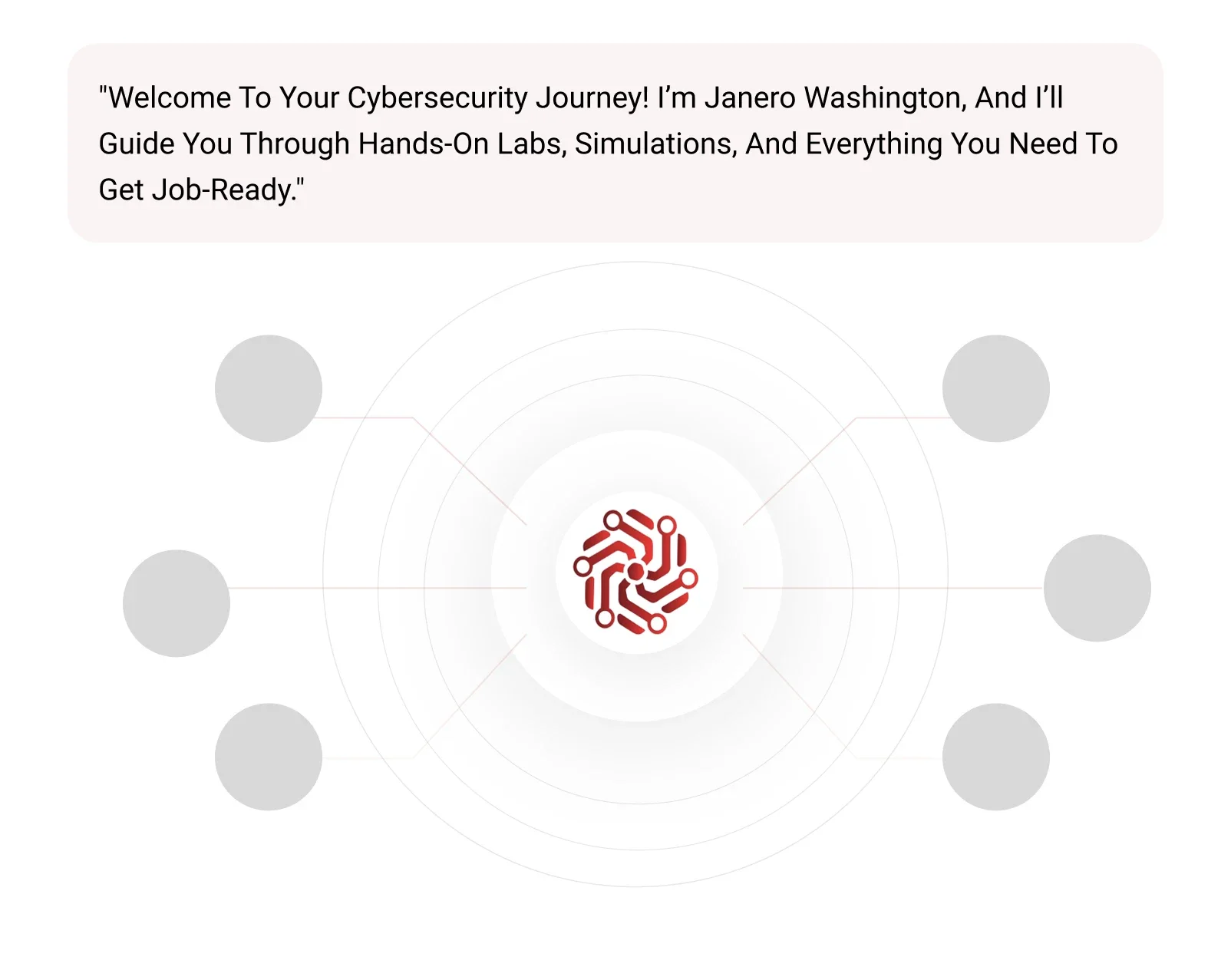
-
04. Dive Into Interactive Learning
Begin hands-on labs, CTF challenges, live webinars, and real-world simulations, all while building your cybersecurity portfolio.
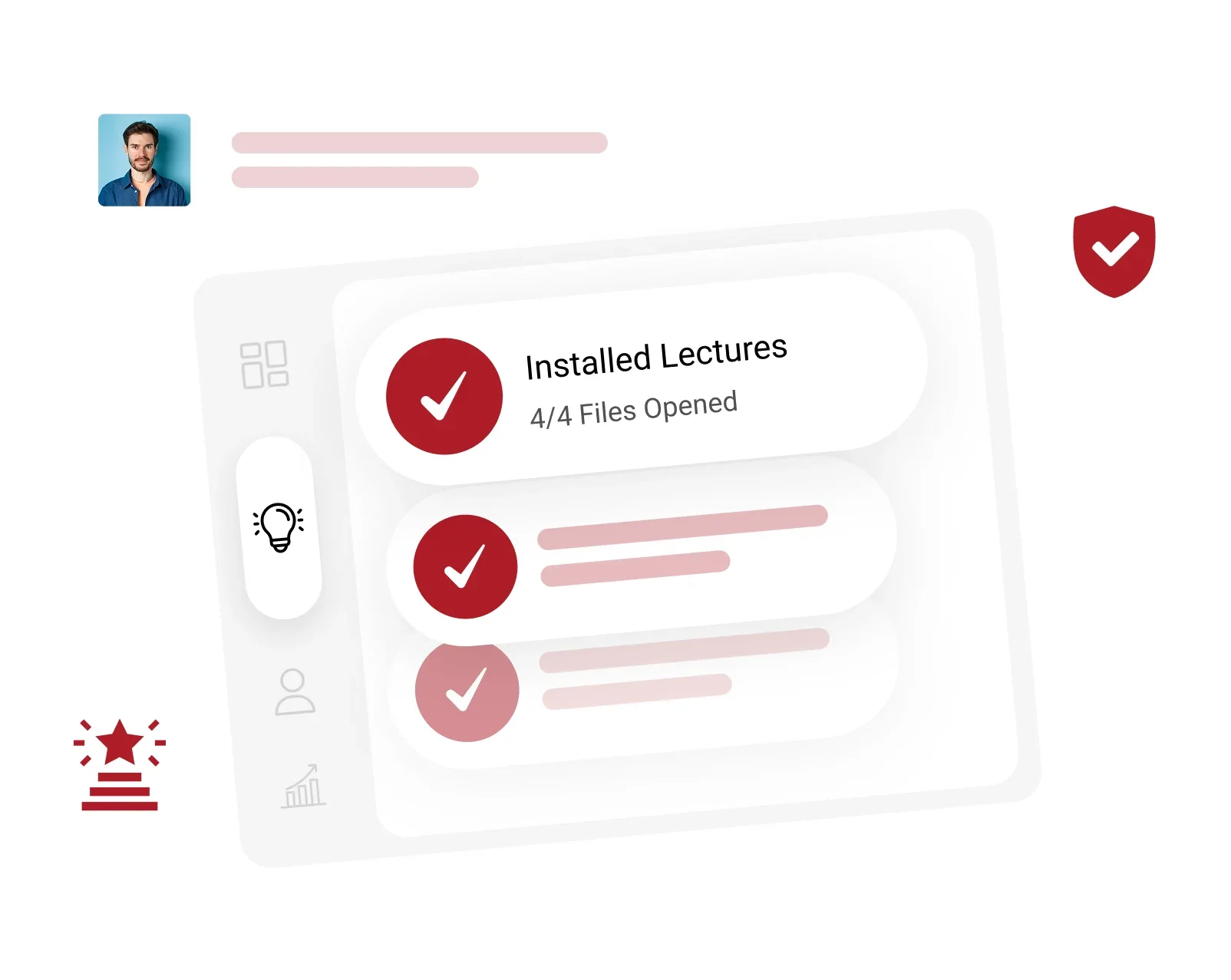
-
05. Complete Certification Exams
Defend a breach simulation, finish your capstone project, and prepare for certifications like CISSP, CEH, OSCP, and more

-
06. Advance Your Career
Walk away not just with a CPD-accredited certificate, but a battle-tested cybersecurity resume employers recognize and trust.

What You Will LearnHow You’ll Learn: Fast-Track or Flex Through ACSMI’s Cybersecurity Certification
Your life isn’t on pause, and your career ambitions shouldn’t be either. That’s why ACSMI’s Advanced Cybersecurity & Management Certification gives you complete control over your timeline:
Both tracks deliver the same powerhouse curriculum, labs, capstone defense, and certification preparation, just built around your reality, not someone else's.
Fast-Track Option
Complete your full certification in as little as 8 weeks through an intensive, structured bootcamp experience, perfect for career changers and go-getters ready to dive in.
Self-Paced Flexibility
Need balance? Take 3–6 months to work through the curriculum around your job, family, or existing studies, with no deadlines locking you down.
Who Needs UsWho ACSMI’s Dual Cybersecurity & Management Certification Is Built For
Cybersecurity has no one-size-fits-all, and neither does ACSMI’s Advanced Cybersecurity & Management Certification. Wherever you're starting, ACSMI doesn’t just prepare you for a cybersecurity job — it prepares you to lead the future of security itself.
College Graduates
Launch your career with leadership-grade credentials and skills that outpace entry-level competition.
Career Changers
Break into cybersecurity fast with practical, recognized certification and hands-on proof you can deliver.
IT Professionals
Specialize and pivot toward six-figure cybersecurity roles, cloud security, ethical hacking, or threat intelligence.
Security Analysts
Move up from daily tasks to high-level strategic defense, threat hunting, and leadership roles.
Aspiring CISOs
Learn governance, budgeting, and security operations leadership to transition into decision-maker roles.
who is it forWho Hires Cybersecurity Specialists With ACSMI’s Advanced Cybersecurity & Management Certification?
Demand is growing across every vertical that depends on digital operations — and ACSMI-certified professionals are equipped to lead across them all.
-

Healthcare cybersecurity
(hospitals, biotech, pharmaceutical sectors)
-

Financial services cybersecurity
(banks, fintech startups, insurance companies)
-

Defense and aerospace cybersecurity
(contractors, military agencies)
-

Critical infrastructure protection
(energy, water, transport systems)
-

Enterprise IT security
(Fortune 500 corporations, cloud providers, tech giants)
-

Smart cities and IoT security
(municipal IT, transportation systems, smart grids)
TestimonialsWhat Our Clients Say, real words from real Partners
Who is it ForACSMI’s Cybersecurity Certification: Built for Leaders, Not Just Technicians
The cybersecurity world doesn’t just need defenders — it needs strategists.
ACSMI’s Advanced Cybersecurity & Management Certification trains you not only to secure systems but to lead security programs with:
Unlike technical-only bootcamps, ACSMI’s certification transforms:
Technicians into Managers, Analysts into Strategic Leaders, Security Architects into CISOs
Governance Mastery
Understand frameworks like NIST, ISO, and GDPR inside out.
Compliance Leadership
Navigate HIPAA, PCI-DSS, SOX, CMMC, and more.
Budgeting & Risk Management
Build security budgets, calculate risk exposure, and present to executives.
Incident Management
Lead breach responses, coordinate teams, and deliver executive-level reporting.
Ready to Become a Certified Cybersecurity Specialist?
Don't settle for average. Invest in the best cybersecurity certification online and elevate your future.
Enroll in ACSMI's Advanced Cybersecurity Certification today and start leading the future of cybersecurity.
ACSMI’s Advanced Cybersecurity CertificationMost Peoples Often Ask These Questions
-
The ACSMI Advanced Cybersecurity & Management Certification covers every critical domain in modern cybersecurity, including:
Foundations of Cybersecurity:
Risk management, cybersecurity frameworks (NIST, ISO 27001), threat landscapes, and governance principles.Information Security and Data Protection:
IAM (Identity and Access Management), authentication protocols, cryptography, privacy standards (GDPR, CCPA), and secure IoT development.Network Security and Infrastructure Protection:
Firewalls, VPNs, wireless security, Zero Trust Architecture (ZTA), and cybersecurity for 5G and telecom environments.Endpoint and Application Security:
Hardening mobile apps, securing cloud deployments, protecting endpoints through EDR and XDR technologies.Threat Intelligence and Threat Hunting:
Threat modeling, malware analysis, APT simulation, and proactive threat hunting methodologies using real-world tools.Incident Response and Digital Forensics:
IR planning (NIST 800-61), SOC management, memory/network/cloud/mobile forensics investigations.Ethical Hacking and Penetration Testing:
Red teaming, physical penetration testing, mobile and IoT device hacking, web application exploitation.Cloud Security and Virtual Environments:
Cloud architecture hardening (AWS, Azure), container security, serverless functions, and cloud incident response.Cybersecurity in Critical Sectors:
Healthcare, finance, defense, aviation, maritime, manufacturing, and smart cities cybersecurity practices.Emerging Technologies and Advanced Threats:
Blockchain security, quantum computing risks, IoT forensics, drone and space exploration cybersecurity.
Every domain combines theory, hands-on labs, real-world simulations, and capstone execution, making ACSMI a truly complete cybersecurity training program.
-
ACSMI’s cybersecurity certification is designed to be flexible yet structured for mastery. If you follow the 8-week fast-track, here's how it typically unfolds:
Week 1-2: Foundations of cybersecurity, risk management frameworks, and information security basics. You’ll build strong fundamentals on which the rest of the course relies.
Week 3: Network security architecture, firewalls, VPN configuration, wireless security, and Zero Trust principles.
Week 4: Endpoint protection, application security, web vulnerabilities, mobile security, and beginning ethical hacking labs.
Week 5: Deep dive into threat intelligence, malware analysis, red teaming, purple teaming, and practical threat hunting exercises.
Week 6: Cloud security fundamentals, container security, serverless protection strategies, and cloud compliance management.
Week 7: Incident response management, digital forensics (Windows, Linux, mobile, and cloud forensics), SOC operations.
Week 8: Capstone preparation — breach simulation defense, full incident response, real-world penetration testing, portfolio building, and certification exam preparation.
If you choose the 3–6 month self-paced track, the structure remains similar but allows more time per domain, including additional deep dive electives into blockchain security, AI cybersecurity, and critical infrastructure protection. This ensures that students can personalize their experience based on career goals while maintaining structured progression across all cybersecurity pillars.
-
ACSMI ensures you don’t just learn cybersecurity theory — you build hands-on expertise with the industry’s most in-demand tools and platforms. During your training, you will work extensively with:
Splunk and Elastic Stack for real-world SIEM and log analysis operations.
Nessus and OpenVAS for vulnerability scanning and compliance testing.
Kali Linux and Metasploit Framework for ethical hacking, network exploitation, and penetration testing.
Wireshark and tcpdump for packet-level network traffic inspection and forensic analysis.
Ghidra and IDA Pro for advanced malware reverse engineering tasks.
AWS Security Hub and Azure Sentinel for securing multi-cloud environments.
Burp Suite and OWASP ZAP for web application security testing and exploitation.
Hashcat and John the Ripper for practical password cracking exercises.
Terraform and CloudFormation for Infrastructure-as-Code security in DevSecOps pipelines.
You’ll simulate real cyberattacks and defensive responses across these platforms in guided labs, practical exercises, and capstone scenarios. This ensures you graduate ACSMI not only certified but also fully fluent in the tools employers trust most when hiring cybersecurity talent.
-
Investing in ACSMI’s cybersecurity certification isn’t just about gaining knowledge — it’s about unlocking career-changing opportunities. Here’s what you’ll gain:
1. Global Recognition:
Earn a CPD-accredited, industry-trusted certification recognized by employers worldwide.2. Real-World Readiness:
Graduate with proven lab experience in SIEM management, threat hunting, ethical hacking, digital forensics, and cloud defense.3. Career Mobility:
Qualify for roles like Cybersecurity Analyst, Cloud Security Engineer, Penetration Tester, Incident Response Specialist, and more.4. Leadership Skills:
Master security governance, budgeting, compliance (HIPAA, PCI-DSS), and risk management needed for leadership tracks.5. Salary Acceleration:
Cybersecurity certifications consistently lead to salary boosts of 20–40% according to industry reports — and ACSMI grads often see even higher jumps.6. Future-Proofing:
Get trained in emerging fields like quantum threat defense, AI security, and smart infrastructure protection.7. Flexible Learning:
Fit cybersecurity mastery around your lifestyle, whether you sprint in 8 weeks or spread it over 6 months.8. Long-Term Career Security:
Cybersecurity has one of the lowest unemployment rates globally — ACSMI gives you the practical advantage to thrive no matter how tech evolves.In short: this certification doesn’t just check a box — it creates career momentum that lasts.
-
ACSMI provides real-world, simulation-driven labs designed to apply what you learn. Key lab and project experiences include:
Firewall and VPN Setup: Configure enterprise-grade firewalls and encrypted VPN tunnels.
Network Security Analysis: Use Wireshark and Splunk to monitor, detect, and investigate anomalies.
Threat Hunting: Deploy practical hunting techniques to detect hidden threats using live data feeds.
Web Application Security: Perform ethical hacking exercises on vulnerable applications with Burp Suite and OWASP ZAP.
Cloud Security Challenges: Secure AWS and Azure environments by detecting misconfigurations and building defense plans.
Digital Forensics: Recover deleted files, analyze memory dumps, and trace network intrusions.
Capstone Project:
Architect an entire cybersecurity infrastructure.
Conduct a full-scale breach simulation.
Defend against advanced persistent threats (APTs).
Present findings through professional-grade reporting.
These experiences ensure you graduate with a full cybersecurity portfolio demonstrating your real-world expertise.
-
ACSMI prepares you not just academically but to confidently pass other top cybersecurity certifications too. Here's how:
Certification-Aligned Curriculum: Maps directly to exams like CISSP, OSCP, CySA+, CEH, CCSP, GPEN, and more.
Weekly Practice Quizzes: Reinforce knowledge and simulate exam conditions.
Hands-On Lab Assignments: Covering penetration testing, cloud security, threat detection, and forensics.
Mock Exams and Timed Simulations: Benchmark readiness and adjust study plans.
Exam Strategy Workshops: Develop time management, elimination tactics, and answer reasoning under pressure.
Focused Mentorship (Optional Upgrade): Access to cybersecurity experts for exam preparation coaching.
ACSMI ensures you’re not just studying — you’re ready to pass and excel.
-
ACSMI’s certification program stands apart from typical online bootcamps in key areas:
Depth of Content: 379 modules across cybersecurity domains vs. limited topic coverage elsewhere.
CPD Accreditation: 170+ CPD hours recognized globally — a rare credential among bootcamps.
Practical-First Approach: Labs, live simulations, and capstone defenses instead of lecture-only learning.
Career Path Coverage: Preparation for cybersecurity analysts, cloud engineers, threat hunters, ethical hackers, and security managers.
Flexible Learning Paths: Fast-track (8 weeks) or self-paced (up to 6 months) to fit any schedule.
Mentorship Access: Personal guidance from industry experts (optional upgrade).
Leadership and Governance Focus: Learn to lead cybersecurity programs and manage risk, not just technical skills.
ACSMI’s program gives you a leadership-grade certification — not just an entry-level bootcamp credential.
-
Cybersecurity isn’t a luxury skill anymore — it’s a survival skill in the digital era. With AI advancements, IoT expansion, and rising quantum computing threats, the future will demand more than surface-level defenses.
ACSMI’s Advanced Cybersecurity & Management Certification is designed to future-proof your career with real-world mastery across:
Quantum-Resistant Cybersecurity: Prepare to defend against next-gen computing threats.
AI and Machine Learning in Security: Learn how AI is both a weapon and a shield.
Critical Infrastructure Defense: Protect power grids, hospitals, airports, and national networks.
Cloud and Hybrid Environment Mastery: Build and secure global infrastructure in AWS, Azure, and beyond.
Your career doesn’t need to survive the future — it needs to lead it.
By completing ACSMI’s cybersecurity certification, you won’t just keep up — you’ll be the professional others call when the stakes are highest.
Online cybersecurity training with certificate ready for future-facing roles.
Advanced cybersecurity certification built on tomorrow’s threat models, not yesterday’s.
Career proofing for a lifetime of evolving opportunities.
Choosing ACSMI is choosing leadership in an unpredictable world.
-
Graduates of ACSMI’s certification program are positioned for immediate impact in:
Healthcare cybersecurity (hospitals, biotech, pharmaceutical sectors)
Financial services cybersecurity (banks, fintech startups, insurance companies)
Defense and aerospace cybersecurity (contractors, military agencies)
Critical infrastructure protection (energy, water, transport systems)
Enterprise IT security (Fortune 500 corporations, cloud providers, tech giants)
Smart cities and IoT security (municipal IT, transportation systems, smart grids)
Demand is growing across every vertical that depends on digital operations — and ACSMI-certified professionals are equipped to lead across them all.
What makes ACSMI the best cybersecurity certification online?
A: ACSMI combines CPD accreditation, real-world labs, mentorship options, and a complete mastery-focused syllabus unmatched by traditional programs.Is this a CPD accredited cybersecurity certification?
A: Yes, it awards 170+ CPD hours, recognized internationally by employers and professional bodies.Can beginners enroll in this cybersecurity certification course?
A: Absolutely. It's designed for both beginners and experienced IT professionals seeking a robust foundation.How fast can I complete this cybersecurity bootcamp online?
A: You can complete it in 4–8 weeks with our accelerated track.Is there a self-paced cybersecurity certification option?
A: Yes. You can take 3–6 months if you prefer a flexible learning schedule.Does this cybersecurity training program include a capstone project?
A: Yes. You’ll build and defend a full enterprise security architecture.Will I get ethical hacking and penetration testing training here?
A: Definitely. Modules cover network, mobile, IoT, cloud, and physical penetration testing.Does the course cover cloud security?
A: Extensively. It includes cloud security certification courses covering AWS, Azure, containers, and serverless.Is mentorship included in the course price?
A: Mentorship is available as an upgrade for personalized career support.Are payment plans available?
A: Yes! You can pay in 12 monthly installments of just $208.Will I get cybersecurity certification exam preparation support?
A: Absolutely. We prepare you for CISSP, OSCP, CySA+, CCSP, GPEN, and more.Does the course include threat hunting and SOC management?
A: Yes. It offers advanced threat hunting training programs and SOC building frameworks.Can I transition to a cybersecurity leadership role after this?
A: Yes. The program includes leadership tracks, budget planning, and governance modules.Are live webinars included?
A: Yes. You’ll attend live cybersecurity webinars hosted by expert instructors.Will completing ACSMI help in cybersecurity job placement?
A: Yes. While placement isn't guaranteed, our graduates consistently land interviews and roles within months.
Contact Us for Team Training & Group Discounts
Upskill your entire team with industry-leading cybersecurity training. Whether you're a startup or an enterprise, we offer custom staff training packages, complete with group discounts, dedicated onboarding, and flexible scheduling.
Empower your workforce with hands-on labs, real-world simulations, and certification-aligned learning—all tailored to your organization’s needs.
The more seats you book, the more you save. Contact us today to get started.
Get in Touch
Articles
